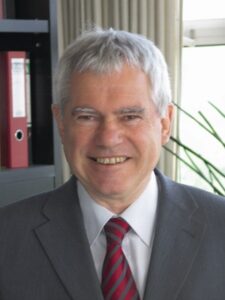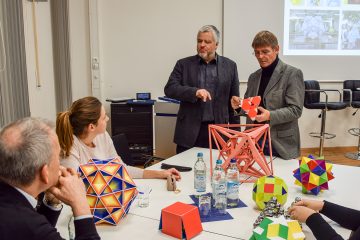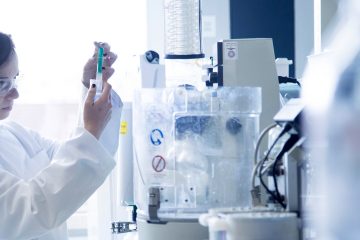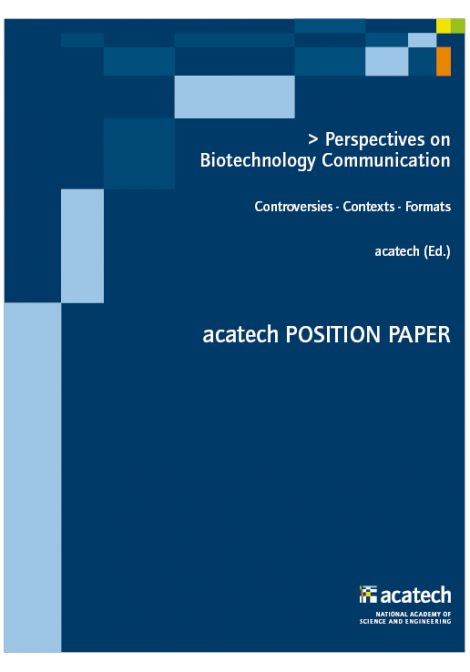Communicating New Technologies – Biotechnology
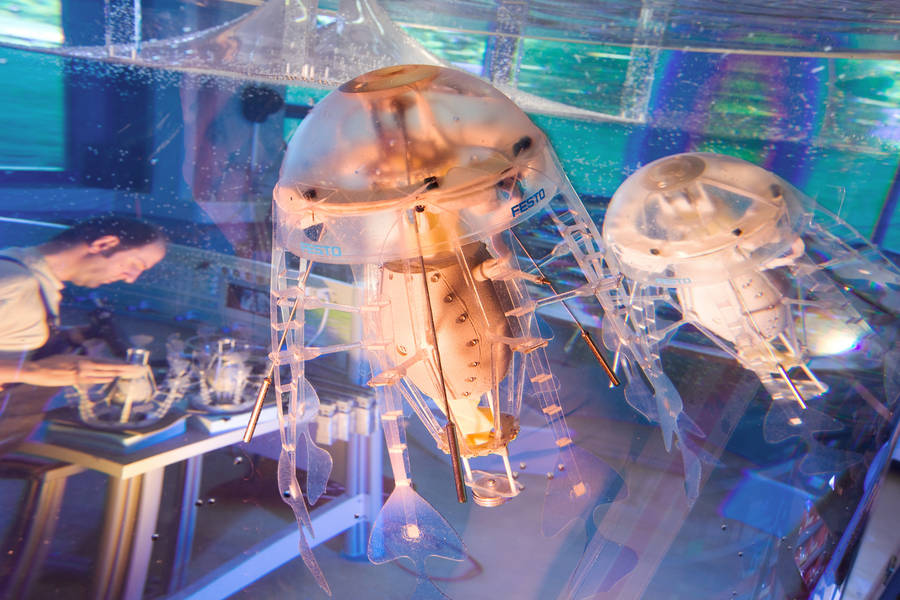
© acatech/T. Ernsting
Background and aims
Biotechnology is a prime example of the “new technologies” that define the horizon of possibilities for our modern society. Discussion of such technologies provides an insight into some of the key interests, conflict lines and trends in society.
Biotechnology has been surrounded by controversy ever since it first emerged, and there have also been various attempts to analyse this controversy. Significant resources have been invested both in Germany and around the world to try and increase public “acceptance” of genetically modified crops – hitherto with very little success.
This project aims to carry out a sociological and historical analysis of communication, debates and controversies in the field of biotechnology, in order to help identify novel, more promising communication approaches.
Based on past experience of controversies and communication activities relating to genetically modified crops and other biotechnology fields, together with an overview of scientific research and science communication in this field, the project aims to formulate recommendations for new approaches that could help to deliver more successful biotechnology communication in the future (especially with regard to synthetic biology). The criteria for “success” will be defined during the course of the project (e.g. changing public opinion, increasing acceptance, an open dialogue with no preconceived outcomes).
Project group members
- Prof. Dr. rer. nat. Wolfgang M. Heckl
Deutsches Museum / TU München - Prof. Dr. rer. nat. habil. Bernd Müller-Röber
Universität Potsdam - Prof. Dr. rer. nat. habil. Alfred Pühler
Universität Bielefeld - Prof. Dr. rer. pol. Dr. h.c. Prof. E. h. Ortwin Renn
IASS Potsdam - Prof. em. Dr. Peter Weingart
Universität Bielefeld - Prof. Dr. rer. nat. habil. Günther Wess
Helmholtz Zentrum München
Further Information
Biotechnology Journal: “Improving Biotechnology Communication”


